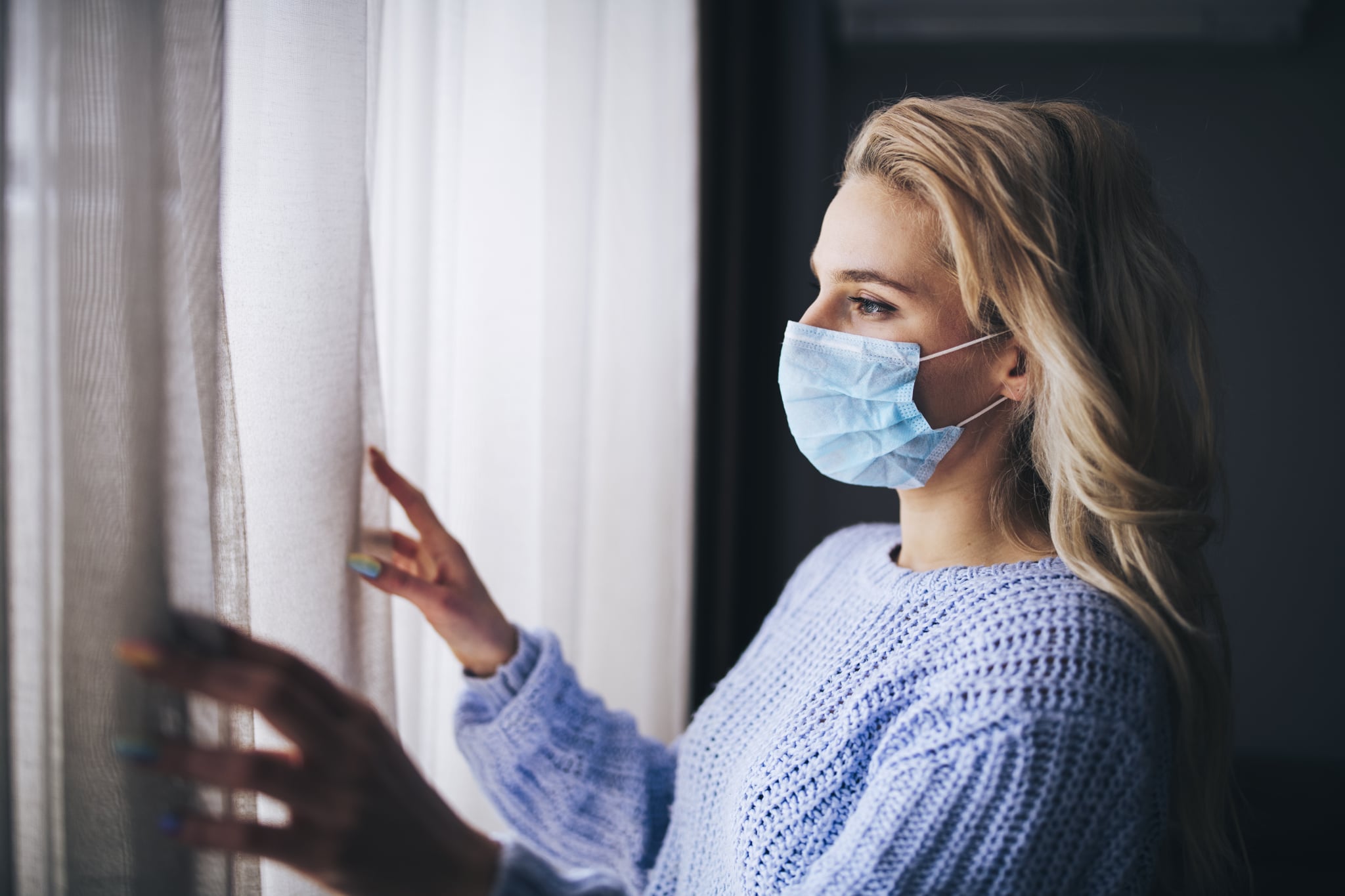
These Are the Underlying Conditions That Could Put You at Risk For Severe COVID-19
by Maggie RyanWhile anyone can contract the coronavirus, the question of whether you'll get a severe case of COVID-19 is on a lot of our minds. The CDC estimates that 40 percent of coronavirus cases are asymptomatic, and while that means you can still spread the virus and be in danger of the long-term side-effects, it goes without saying that an asymptomatic or mild infection is preferable to a case that lands you in the hospital. Based on what doctors currently know, there are a few underlying conditions that may make you susceptible to a severe case, and we'll go over them ahead. Remember that having one of these conditions doesn't mean you're 100 percent certain to contract a more serious case of COVID-19; instead, take this as another reminder that this disease can be life-threatening, and another reason to keep wearing a face mask and practicing social distancing to protect yourself and others.
Older People Have Higher Risk of Severe Coronavirus
"As you get older, your risk of being hospitalized for COVID-19 increases," the CDC says. Eight out of 10 COVID-19-related deaths reported in the US have been people at or above the age of 65. People aged 85 or older have the highest risk for severe COVID-19.
According to infectious disease doctor Lisa Maragakis, MD, in an article for Johns Hopkins Medicine, this older people may be at higher risk because they're more likely to have long-term health problems, weaker immune systems, issues with lung tissue, and more severe inflammation, which can cause organ damage.
Medical Conditions With High Risk of Severe Coronavirus
Several medical conditions confer an increased risk of severe COVID-19, regardless of age, the CDC says. These are:
- Cancer: Cancer and cancer treatments can weaken the immune system, putting cancer patients at risk. It's unknown if having had cancer in the past also puts you at risk.
- Chronic kidney disease: Any stage of chronic kidney disease can increase your risk of severe COVID-19.
- COPD (chronic obstructive pulmonary disease): COPD is defined as a group of lung diseases, including emphysema and chronic bronchitis, that block airflow and make it hard to breathe. Because of this, COVID-19 patients with COPD are more likely to experience poor outcomes with COVID-19, including severe pneumonia, according to a study published in June.
- Immunocompromised state (weakened immune system): People can be immunocompromised following a number of conditions and treatments, including organ, blood, or bone marrow transplant; immune deficiencies; HIV; and use of immune-weakening medicines. This lowers your body's defense abilities against viruses like the coronavirus.
- Obesity: The CDC defines obesity as a body mass index (BMI) of 30 or higher. A study published in August found that people with obesity with COVID-19 were 113 percent more likely to be hospitalized. Researchers are still looking into exactly why this is, but side effects of obesity such as impaired immunity, inflammation, and blood that's prone to clotting may be part of it. People with obesity are also more likely to have other diseases that convey higher risk of severe COVID-19.
- Serious heart conditions: Heart failure, coronary artery disease, cardiomyopathies, and pulmonary hypertension can all increase the risk of severe COVID-19. This is because your heart works with your lungs to deliver oxygen throughout your body, Dr. Maragakis wrote. COVID-19 primarily hurts your lungs, which means that your heart needs to work even harder, a challenge for people already living with heart conditions.
- Sickle cell disease: Sickle cell disease is a hemoglobin disorder that can block blood flow and cause clotting, which may lead to more severe cases of COVID-19.
- Type 2 diabetes: According to the American Diabetes Association, people with diabetes, and particularly type 2 diabetes, face a higher risk of severe COVID-19; it could increase inflammation However, "Your risk of getting very sick from COVID-19 is likely to be lower if your diabetes is well-managed," according to the ADA. The CDC emphasizes the importance of continuing to take diabetes pills and insulin as usual.
The CDC has also identified several other conditions that may convey higher risk of severe COVID-19, including moderate to severe asthma, cystic fibrosis, high blood pressure, liver disease, and smoking. You can see the full list of potentially at-risk conditions here.
If you have any of these conditions, the best thing to do is to continue with your current treatment, consult with your doctor, and take all recommended precautions against the coronavirus, including wearing a mask, social distancing, and staying away from public areas as much as possible.
POPSUGAR aims to give you the most accurate and up-to-date information about the coronavirus, but details and recommendations about this pandemic may have changed since publication. For the latest information on COVID-19, please check out resources from the WHO, CDC, and local public health departments.